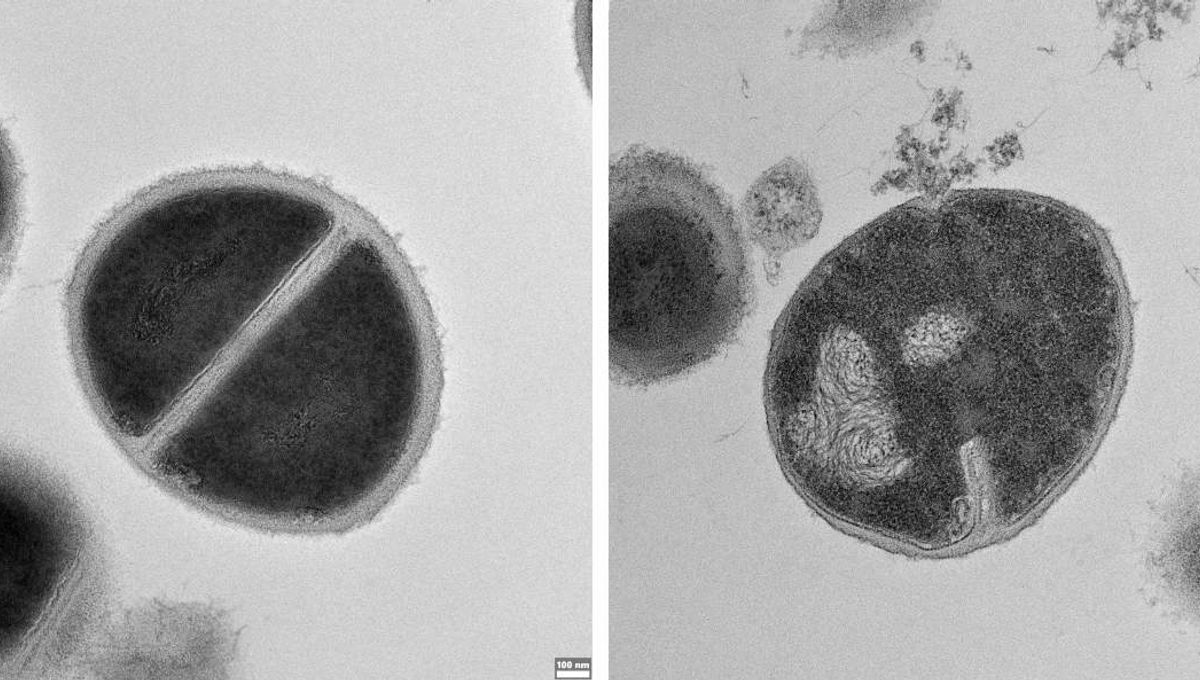
As well-researched as the immune system is, it still regularly manages to throw us a surprise or two. The latest discovery? A whole new mechanism that’s been hidden all along in cells’ garbage disposal and recycling system.
ADVERTISEMENT
One of the key elements of that system is the proteasome, a structure that chops up proteins that are faulty or no longer needed into smaller pieces known as peptides. These fragments might be recycled into new proteins – or, as previous research has found, act as a signal to the immune system that a cell is under threat.
But it turns out that’s not the only role the proteasome plays in the immune system; researchers from the Weizmann Institute of Science now think that it cuts up proteins into peptides that can kill bacteria.
To explore this possibility, the team trawled through a massive amount of previously collected data on proteasome-derived peptides. In doing so, they discovered that some of them had a similar sequence of amino acids (the building blocks that make up proteins) to known antimicrobial peptides.
“Before now, we knew nothing about the connection between proteasome products and the production of these peptides,” said study author Professor Yifat Merbl in a statement. “In light of our findings, we conducted an extensive series of experiments demonstrating that the proteasomes are key to this defense system.”
For example, they needed to show that it was indeed the proteasome responsible for producing these peptides. To do so, they used two groups of human cells; one had proteasomes inhibited; and in the others, the proteasomes were active as normal. When they infected these cells with bacteria, those with an inhibited proteasome couldn’t put up a fight against the infection.
In another experiment, the team put one of the proteasome-derived peptides to the test in mice with bacterial infections modeling pneumonia and sepsis. One group of these mice received the peptide, while a control group received either an antibiotic or a saline solution.
ADVERTISEMENT
This test showed that not only was the peptide effective at controlling the bacterial infection in mice, but it also performed at a level on par with existing antibiotics.
The team’s investigation also showed that while the proteasome produces antimicrobial peptides routinely, it ramps up this activity when there’s a bacterial infection. The team even pinned down the exact part of the proteasome that controlled this “turbo mode”, as they put it.
“We saw that infection causes the proteasome to change its protein-cutting mode, ‘favoring’ the production of peptides with antibacterial properties,” said Merbl. “That was when we realized we had uncovered a previously unknown immune mechanism,” added project lead Karin Goldberg.
It’s hoped that their findings may have cracked open a whole new world of possibilities for antimicrobials; using simulations, they’ve already identified over 270,000 possible – and previously unknown – proteasome-derived peptides in the human spectrum of proteins alone.
ADVERTISEMENT
“This peptide database opens a new frontier for developing personalized treatments against infections and other medical conditions,” Merbl concluded.
The study is published in the journal Nature.
Source Link: New Immune System Mechanism Found Hidden In Cellular "Trash” Uses Bacteria-Busting Peptides